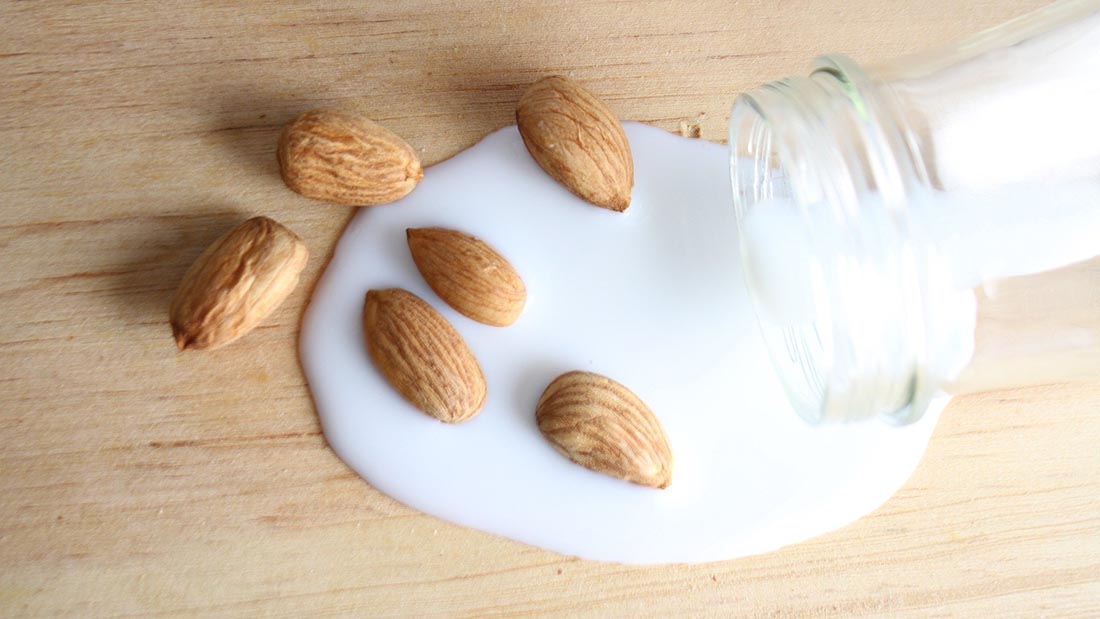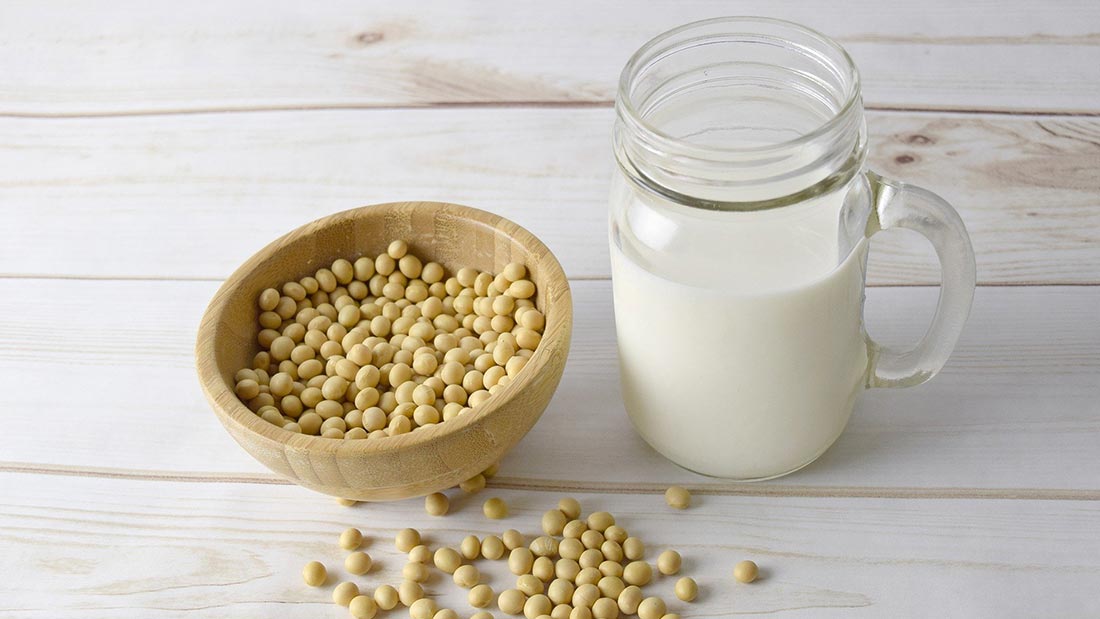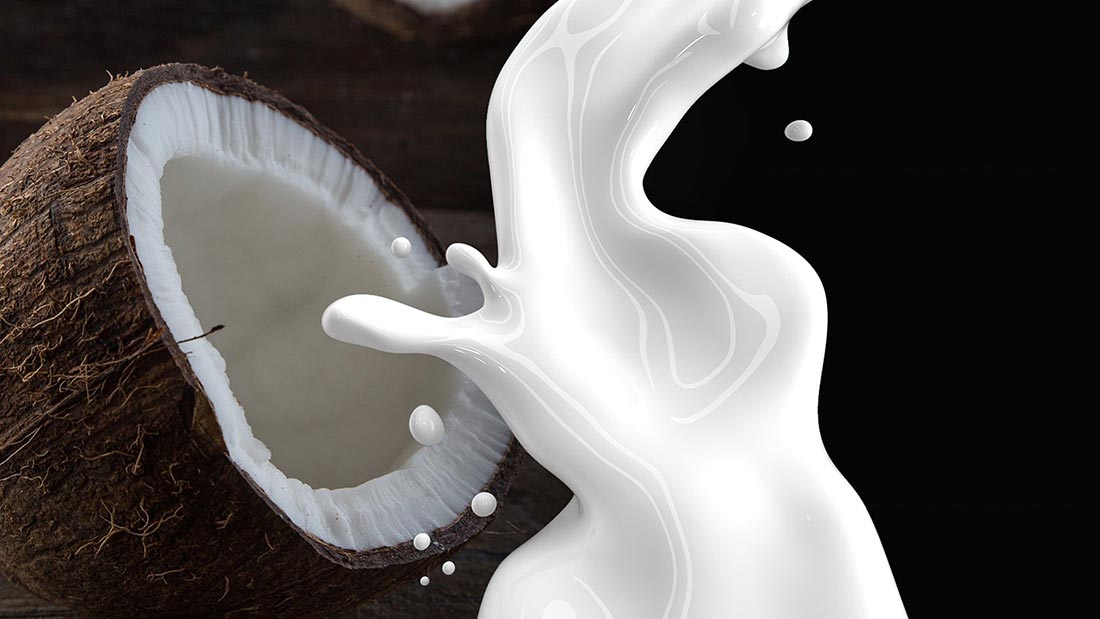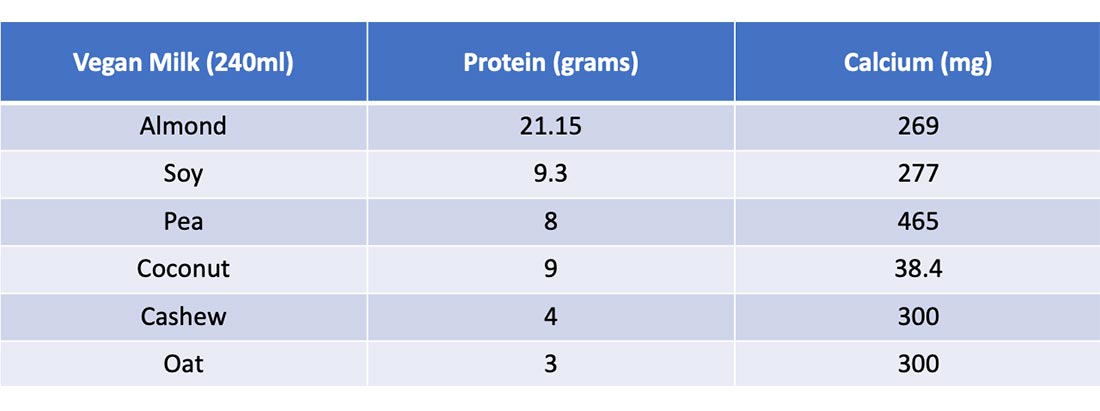6 Vegan Milks That Are Great For Fueling Runners

Which vegan milk has the most plant power?
Plant-based milk is a popular choice for those looking for a vegan, dairy-free, calcium-enriched drink. Vegan milk is especially important for active individuals searching out a substitute for cow’s milk. The calcium provided, after all, is essential to live a nutritionally healthy lifestyle.
Eating a vegan diet entails not eating animal products such as meat, fish and animal milk. Luckily, if you are following a vegan diet, alternative plant-based milk options to fuel runners still provide the right intake amount of calcium and protein. Vegan milk choices are more widespread than you might think and hold the same – if not more – nutritional health benefits as cow’s milk.
Here are the six best dairy-free milk options if you are a runner, a vegan bodybuilder or an exercise fanatic.
Almond Milk
Almond milk is a great non-dairy milk alternative, and is one of the most popular around. It’s low in calories and sugar and can be high in vitamin D and vitamin E when fortified. Plant-based almond milk is made by grinding up almonds and mixing them with water, which then is filtered and developed into a nut milk product.
Almond milk contains a great many benefits, including its immunity support through vitamin E. That vitamin is made of a group of eight fat-soluble compounds. It aids skin cell health and has anti-inflammatory properties. Almond milk also contains vitamin D which helps to maintain the amount of calcium within the body. This helps keep your bones and muscles strong and healthy.
A Vitamin D deficiency can lead to poor bone density, osteoporosis, and even cardiovascular disease. In order to make sure you are getting enough Vitamin D, try a plant-based liquid vitamin D3 supplement, which is perfect for maintaining healthy bones. It also promotes heart health when taken in liquid form to make sure the absorption of vitamin D goes into your body rapidly.

Soy Milk
Soy milk is made from soybeans and filled with protein; 15g of protein per daily serving to be exact. This makes soy milk the most nutritious out of all vegan milk alternatives. Soy milk also contains a plentiful source of vitamin B2 (Riboflavin), which helps to break down fats, proteins and carbohydrates within your body. It’s also needed to maintain your body’s energy levels, growth, and to maintain good overall health. Check out more essential vegan bodybuilding supplements you should take to gain the best nutrition as possible as a vegan.
Soy Milk is perfect for fueling your run thanks to that presence of B2. The vitamin helps the body convert carbohydrates into ATP, the body’s main source of fuel. Vegan soy milk has also been shown to improve heart and bone health. It can reduce artery plaque build-up and contains 30% of your calcium daily intake per 250ml when fortified. That is the same calcium equivalent as cow’s milk.
If you are experiencing any of the symptoms of a vitamin B deficiency – including the feeling of weakness and tiredness, anaemia, and more – you can try a vegan liquid Vitamin B12 supplement to ensure optimal physical and psychological functions within your body.
Oat Milk
Joining Almond and Soy milk is Oat milk, another vegan dairy-free milk alternative with great health benefits!
Oat milk is made from 100% whole grain oats, and filtered through with water until smooth. That makes this plant-based dairy option a great source of fibre, vitamin B, iron, and protein. Oat milk can also reduce the risk of heart disease through ‘beta-glucan’ fibre which is linked to healthy cholesterol levels.
Oat milk contains approximately 100 calories per serving and 3g of protein,. If you are looking for a high protein alternative, check out PERFORM protein powder, which includes 20g of protein per serving. It also just happens to taste delicious when mixed with oat milk or any vegan milk alternative!
It is also important to make sure you are receiving the best nutrients while exercising. Following a vegan bodybuilding diet is a great way to make sure you are consuming a healthy amount of nutrients while reaching your workout goals.

Coconut Milk
Coconut milk is a tasty alternative to cow’s milk as it is derived from mature coconuts and is rich and creamy in flavour.
Coconut milk contains up to 4g of protein and is enriched with vitamin C, magnesium, and folate. All of those are needed to keep up healthy nerve, heart, and blood pressure function. Coconut milk also contains healthy fats which are used for energy production. This makes coconut milk a great beverage for running and general exercise activity, as it can be used to help fuel you when expending energy.
Pea Milk
Looking for a vegan milk that tastes the same and has the same consistency as cow’s milk? Pea milk is definitely the answer.
Pea milk has several health benefits, including the fact that it is high in protein (8g per serving) and rich in calcium. Both nutrients are important for bone and muscle health. Similar to almond milk, pea milk contains 50% more calcium than regular cow’s milk. It also has a great variety of other important nutrients including potassium, vitamin D, and vitamin A.
Pea milk is also sustainable, unlike cow and almond milk. It only has a small carbon footprint through the manufacturing process, as only 387g of carbon dioxide emissions are made when creating pea milk. This is a great example of sustainable vegan milk. Such sustainability is a real plus, as there has been a considerable amount of discussion around plant-based milk production.
Cashew Milk
Cashew milk is a deliciously creamy plant-based milk option that is filled with vitamins, minerals and nutrients. They make it great for fueling exercise performance.
Cashew milk has several benefits as this vegan milk contains 300mg of calcium per 240g, and is full of vitamin D. That vitamin helps with bone development, strengthening the immune system, and improving heart health. Thanks to the health benefits of vitamin D within cashew milk, this vegan milk is a great option for fueling your run and preventing bone-stress.
Each vegan milk has different protein and calcium benefits, and are all good substitutes to cow’s milk. However, if you are active, it is important to remember that protein is key to fueling a runner!
You can check out the graph below which displays the six vegan milk options and compares their calcium and protein content. This will help you choose which plant-based milk is best for you and your dietary needs:





